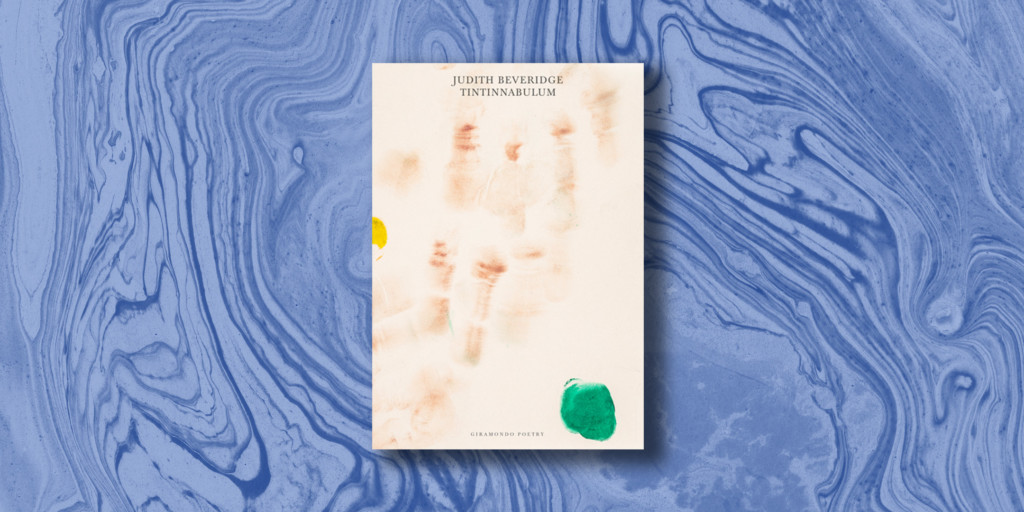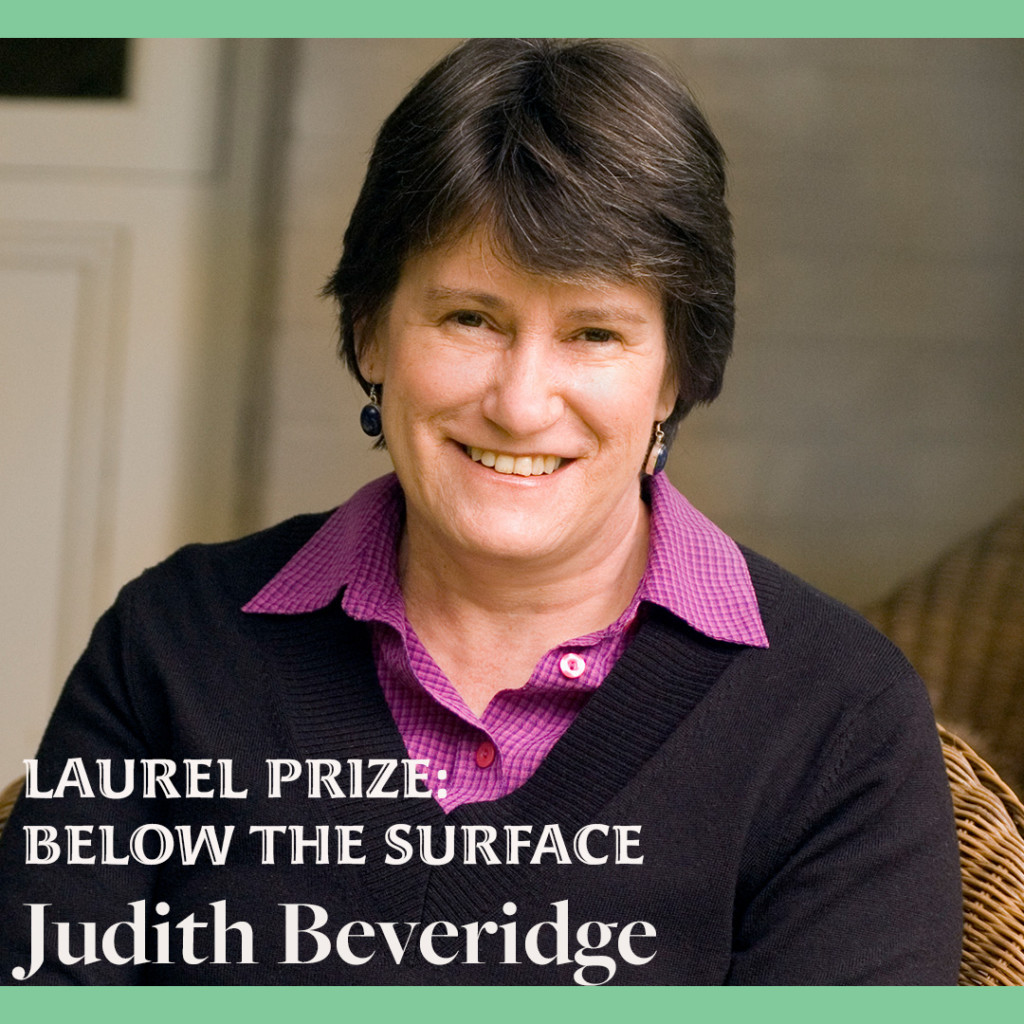Welcome to our Below the Surface series for the 2025 Laurel Prize finalists. These pieces shine a light on the creative practice behind these outstanding collections and show how nature and the climate crisis impacted the authors’ processes. Here’s Judith Beveridge on her collection Tintinnabulum.

I always write at home in a garage that I have converted into a small studio. I find cafés and outdoor spaces too distracting. I carve my poems out over time. I think it was Schiller who, before he wrote, would sniff a drawer full of rotting apples to get him in the mood. My habits are less strange; I usually start by reading poetry, perhaps lighting some incense. I have always written very slowly, and I rarely start with a concept or an idea. In other words, I don’t know what it is I’m going to write about, the ideas are generated by the writing process itself. Usually, I’ll begin with something small and concrete that’s grabbed my attention: it could be a bird calling, something I’ve observed on a walk, or it could be a word, a phrase, a little run of syllables that strike me as interesting. I try to connect with poetry almost every day, either through writing or reading it, or compiling reading material for a group I run, or just speaking with other poets. I am quite disciplined: sometimes I’ll write all day, other times just for an afternoon.
The natural world always inspires me; it doesn’t have to be something beautiful, it can be something distressing such as cruel treatment of animals, or a degraded landscape, or a situation of menace or disquiet. Of course, I also respond to the beauty and grandeur of nature. Birds feature a great deal in my poems. Australian poets are obsessed with birds, we are always writing about them. However, I also write about the human world, using masks or characters as these allow me to open my emotions in ways that are far more interesting to me than just using my own voice. I have a whole sequence of poems based around the lives of three fishermen in my book Storm and Honey, and my collection Devadatta’s Poems is all written from the point of view of the historical character, Devadatta, who lived in ancient India and was a rival of the Buddha.
Many poems in Tintinnabulum focus on the environment, and a few of these specifically mention climate change. Poetry is a great means by which our relationships with nature can be questioned as well as exalted. In poetry, a vast range of abstract associations can be presented in concrete form. I draw on many influences when I write about the environment; it may be the light, the weather, the flora, the fauna, the smells and sounds, all the layers of sensory information that environments offer us. I believe aesthetics are important, that an obscure experimental approach or a poetics that privileges linguistic flux over emotional response can take us away from the deep connection that language has with the body. From the body we get idiosyncrasies of rhythm, music, voice, sensual knowledge, syntactical deportment, emotion and ideas.
I believe that if we’re going to save our planet then we must be emotionally connected to it, and so in my writing about the environment I try to create a sense of awe and wonder. The places I write about are often composites of many different places. The wonderful thing about poetry, as the poet Owen Shears says, is that it is a great tool for ‘excavating the layered associations of environments, revealing these places to be not just a physical locale, but also, in Heaney’s phrase, ‘a country of the mind’’. In my poems that specifically mention climate change I’ve used irony and humour, going sideways to avoid the obvious approaches of outrage and despair.
Poetry is effective in conveying many things because when you write a poem you are using language that questions and presents as truthfully and as specifically as possible the experience of living. I believe poetry has an innate resistance to types of deceptions that political discourse will often try to conjure up. As Jorie Graham has said, poetry ‘tries to clean the language of its current lies’. Poems have the power to deepen awareness. Poetry has always been one of the most powerful and effective forms of addressing and exploring profound human questions. Partly this is because poetry is connected deeply with the breath. Patterns and repeating structures such as rhythm, assonance, alliteration, a recurrence of words, phrases and images act as regulating mechanisms, not only for the breath, but consequently for the movement of thought.
The climate crisis has affected me deeply. I find I’m worried, concerned, and frustrated that not enough is being done and that it may be too late to turn things around, however I also know that humans are wonderfully creative, so I try to be hopeful that major solutions will occur and that political will increases. I’m aware that the things I write about – birds, waterscapes, animals, bushland – may not be around or may be severely reduced and degraded and that I have been very lucky to have enjoyed, in my lifetime, an array of environments and animal life that future generations may not. This makes me appreciate what is around me and to write about it with an awareness of its vulnerability and of its inestimable value.
My main poetic influence would be the Australian poet, Robert Gray. His imagery achieves an exactness and inventiveness which brings both mind and matter into powerful force. Gray’s poems are often transactions between human sentience and insensate landscapes, most memorably the mid-north coast of NSW. I also love Les Murray, Anthony Lawrence, Robert Adamson, and Gwen Harwood: Australian poets who see nature as a source of transformation and redemption. I also love the work of Simon Armitage, John Burnside, Kathleen Jamie, Alice Oswald, Derek Walcott and Charles Wright. I’ve always been drawn to poets who move from looking into vision, not of a mystical kind necessarily, but into some enlargement or transformation while still keeping tenancy with the extrinsic world.

Judith Beveridge has published eight books of poetry. Her books have won major prizes including the Prime Minister’s Award for Poetry for Sun Music: New and Selected Poems. She has been awarded the Philip Hodgins Memorial Medal and the Christopher Brennan Award for excellence in Literature. She lives in Sydney.
Add your Reply
You must be logged in to post a comment.